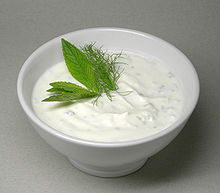Use of Probiotics and Prebiotics in Pediatrics
 This clinical report (free full text) reviews the benefits of probiotic and prebiotic products.
This clinical report (free full text) reviews the benefits of probiotic and prebiotic products.
Probiotics
Probiotics are supplements or foods that contain viable microorganisms that cause alterations of the microflora of the host. Use of probiotics is effective in:
- treating acute viral gastroenteritis
- preventing antibiotic-associated diarrhea
There is some evidence that probiotics prevent necrotizing enterocolitis in very low birth weight infants (birth weight between 1000 and 1500 g), but more studies are needed.
Probiotics were used to treat Helicobacter pylori (Hp) gastritis, irritable bowel syndrome, chronic ulcerative colitis, and infantile colic, as well as in preventing childhood atopy, but the results are preliminary.
Probiotics have not been beneficial in with Crohn disease.
Prebiotics
Prebiotics are supplements or foods that contain a nondigestible food ingredient that selectively stimulates the favorable growth and/or activity of indigenous probiotic bacteria.
Human milk contains a lot of prebiotics.
There may be benefit of prebiotics for the prevention of atopic eczema and common infections in infants.
References:
Probiotics and Prebiotics in Pediatrics. PEDIATRICS Vol. 126 No. 6 December 2010, pp. 1217-1231 (doi:10.1542/peds.2010-2548).




No comments:
Post a Comment